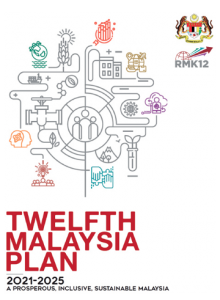A blueprint for healthcare reform will be introduced as a new way forward for national healthcare system transformation
THE COUNTRY and the whole world have been battling the dual crisis of health and the economic problems due to the Covid-19 pandemic, and it has shown the importance of having a robust healthcare sector.
 As such, the much-awaited 12th Malaysia Plan (12MP) gave an insight into Malaysia’s direction for the next five years, not just for the economic landscape but also for the nation’s healthcare system.
As such, the much-awaited 12th Malaysia Plan (12MP) gave an insight into Malaysia’s direction for the next five years, not just for the economic landscape but also for the nation’s healthcare system.
And after several delays, the 12MP (2021-2025) was finally tabled on Sept 27, 2021, in the Dewan Rakyat by Prime Minister Datuk Seri Ismail Sabri Yaakob.
In his speech, Ismail Sabri said: “The Government remains committed to strengthening the healthcare system to ensure the rakyat is healthy and productive.
“In this regard, the government will review the effectiveness of the existing healthcare system, and a national health policy will be formulated to increase preparedness in handling infectious diseases and any future health crisis.”
Gaps in healthcare service delivery
The pandemic has put the world’s healthcare delivery systems to a severe test, and the 12MP has identified significant gaps in the nation’s healthcare delivery system.
Malaysia faces an increasing incidence of double burden diseases. Communicable diseases (CDs) such as dengue, tuberculosis (TB), polio and HIV are on the rise while malaria and measles have reemerged.
Apart from that, the increasing incidence of non-communicable diseases (NCDs) such as cardiovascular diseases, diabetes mellitus, cancer, mental illness and injury-related conditions continue to rise, leading to a high number of avoidable premature deaths among Malaysians.
In public hospitals and clinics, overcrowding and a long waiting time for treatment continue to affect the quality of service delivery.
The increase in the incidence of CDs and NCDs and the need to manage the Covid-19 pandemic, including the rollout of the National Covid-19 Immunisation Programme (NIP), has strained the national healthcare system.
The delivery of healthcare services was also affected by inadequate facilities and a mismatch of resources across different levels of healthcare services. And during the pandemic, this situation has gotten a lot worse, especially for non-Covid cases.
As revealed by Health Minister Khairy Jamaluddin in September there were over 57,000 backlogged non-Covid procedures comprising surgical-based and medical-based cases as of Sept 1.
Furthermore, the inadequate number of health personnel, particularly specialists, disrupts services to rural and remote areas. There is also poor integration of health databases among the public healthcare institutions.
Revitalising the healthcare system
According to the 12MP, revitalising the healthcare system is critical to ensure the people have equal access to quality healthcare services and for the nation to be well-prepared in meeting future health crises.
A blueprint for Malaysia Healthcare System Reform will be introduced as a new way forward for national healthcare system transformation. Several policies will be implemented to address particular health needs, such as oral healthcare, mental health, and vaccinations.
Efforts will be intensified to combat NCDs, focusing on cancer, cardiovascular diseases, diabetes mellitus and mental illness.
Various awareness programmes on a healthy lifestyle will be expanded to cover a wider population. The number of mobile health clinics will be increased, which will improve screening and diagnosis services for colorectal, oral, breast, and cervical cancers.
Cancer awareness programmes will also be held at more health clinics and hospitals, focusing on high-risk groups for early detection.
Meanwhile, prevention and intervention programmes will be intensified to combat CDs, especially during an outbreak or pandemic.
In addition, a more sustainable health financing model will be introduced, and healthcare services will be digitalised to accelerate delivery.
Resources and responsibilities will be consolidated and healthcare services be redesigned through collaboration between the public and private sectors.
The 12MP further states that lessons learned from the pandemic will revitalise healthcare services so that future health emergencies are better managed and prepared.
Ismail Sabri also disclosed that the National Vaccine Development Roadmap was being finalised to ensure Malaysia can produce its vaccine. The roadmap, he added, will also prepare the country to face any pandemic in the future.
To narrow the gap between urban and rural health facilities, he mentioned that the government would build and upgrade health clinics across the nation.
The strategies outlined in the 12MP hopes to improve healthcare quality at affordable prices and enhance healthcare preparedness in managing infectious diseases and health crises. — The Health








